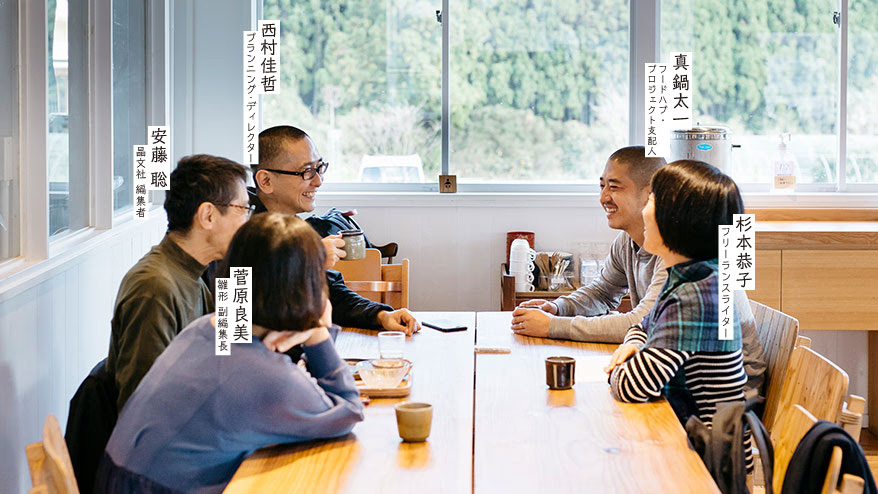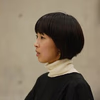Hello to everyone watching "Monosasu."
My name is Sugimoto and I am a freelance writer living in Kyoto.
Since 2016, I have been running a series of interviews with women who have moved to Kamiyama Town, Tokushima Prefecture, in the online magazine Hinagata titled " Daughters of Kamiyama . " While visiting Kamiyama Town, I met Taichi Manabe, head of the Monosus Production Department and manager of the Food Hub Project , and this is what led me to write this article.
First, let me explain a bit about why this article was created.
In June 2018, Manabe began a serial column called " Small Food Policy in Progress" on the online cooking website . While introducing the work of the Food Hub Project, the column asks whether the "everyday food" we eat every day is directly connected to building people and society.
However, when Manabe tried to write formally, he felt that there was a wall in "writing". "At times like this, you should learn from the capable adults around you", he said, grabbing Yoshiaki Nishimura, who also lives in Kamiyama Town, and casually talking to him.
"Nishimura-san, how do I write sentences?"
"Hmm. Well, writing is kind of like music."
Eh, what? What do you mean, writing is like music? -- Let's hear the rest of that story in detail. Seizing the perfect timing when the two editors came to town, Manabe-san brought it into the roundtable discussion in a somewhat sleeping manner, and I, who happened to be there, ended up writing an article about it... that's how it happened.
Well, the theme of the first part is "style." If you're a writer, I think it's something you'll want to stop and think about at least once. Please give it a read.
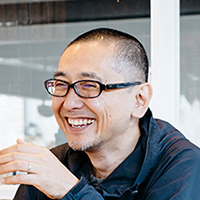
Speaker: Yoshiaki Nishimura Profile :
After working in the architectural field, he is now active in three areas: creating, writing, and teaching. For the past two years, he has been devoted to his work with the Kamiyama Tsunagu Corporation, which he established with the town of Kamiyama.
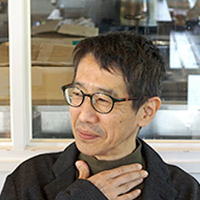
Speaker: Satoshi Ando Profile :
Book editor. After working at Shoeisha, Shobunsha, Basilico, and Gijutsuhyoronsha, he returned to Shobunsha in 2013. He also worked on Yoshiaki Nishimura's debut novel, "Make Your Own Job."
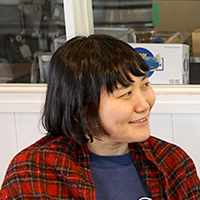
Speaker: Yoshimi Sugawara Profile :
Web magazine editor. After working as an editor for the magazine "ecocolo," he is currently the deputy editor-in-chief of the web magazine "Hinagata," which aims to set "a new standard for migration."
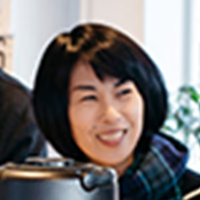
Author: Kyoko Sugimoto Profile :
Freelance writer. Since the fall of 2016, she has been serializing "Daughters of Kamiyama" in "Hinagata," an interview series with women who have moved to Kamiyama. This time, she conspired with Manabe to hold a roundtable discussion.
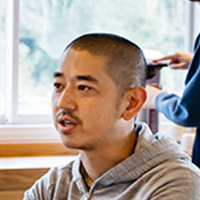
Interviewer: Taichi Manabe Profile :
He is the head of the Monosus Production Department. Since April 2016, he has also served as COO of Food Hub Project Co., Ltd., which was jointly established by Kamiyama Town and the Kamiyama Tsunagu Public Corporation.
At that time, the editor began to talk about "writing style."
Manabe-san brought up the idea of a roundtable discussion while everyone was eating at Kamaya. When he began explaining the background, saying, "Recently, I've started writing for Web Cooking News," everyone was intrigued, asking, "Oh, when did you start writing a series?" and "What do you write about?" As everyone chatted away, "something like a roundtable discussion" began.
Oh, everyone said some good things... Wow, what a waste... what should I do? Oh well, I might as well record it! I took out my IC recorder and pressed the button. So I'll be broadcasting from the table at "Kama-ya"!
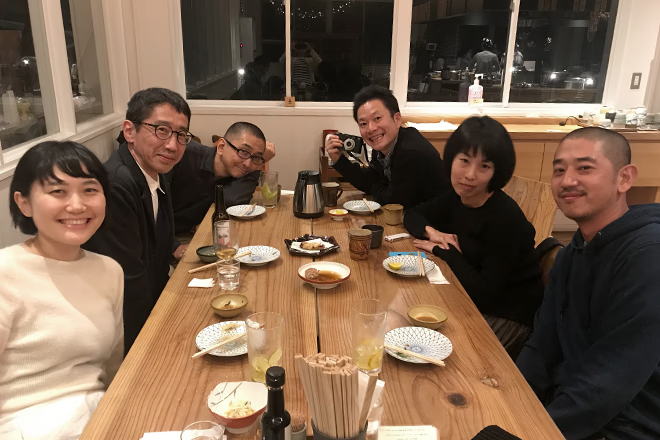
The talk about writing style began while we were tipsy at the Food Hub Project restaurant "Kamaya". From the back left, Nishimura Yoshiaki, in the center left is Ando Satoshi, in the front left is Sugawara Yoshimi, in the back right is Kamiyama-based photographer Ikuzu Katsutaka, in the center right is me, Sugimoto, and in the front right is Manabe.
 Mr. Nishimura (hereafter, titles omitted)
Mr. Nishimura (hereafter, titles omitted)Sugawara, are you reading Manabe's series on "Web Cooking News"?
 Mr. Sugawara (hereafter, titles omitted)
Mr. Sugawara (hereafter, titles omitted)I did read it. But when I read texts on the web or in magazines, I don't usually look at them with the mindset of "Is it good or bad?" What about you, Ando?
 Mr. Ando (hereafter, titles omitted)
Mr. Ando (hereafter, titles omitted)Basically, editors look at the writing style. When communicating in a book or magazine, the only thing that matters is the writing style, so they judge it based on "what's appealing about it?" "There's something about it that's intriguing," "Oh, I think it's interesting," or "I don't really get it, but there's something that catches my attention."
 Nishimura
NishimuraIs there anyone whose writing style has caught your attention so far? ※1 Like Uchida Ikki ?
*1 Mr. Ando has also worked on Uchida Ikki's books.
 Ando
AndoAh, I think Professor Uchida's writing style is the best.
 Manabe
ManabeUmm, excuse me. Can I ask a question about Japanese? What do you mean by "style"? Are things like "desumasu" (desu-masu), colloquial, and ending sentences with nouns part of the style?
 Ando
AndoWell, that is part of the style, but whether or not you use desu-masu is a minor issue. The important thing is the heart of the sentence, and when it comes to determining what the heart of the sentence is, the truth is that it's hard to know.
 Manabe
ManabeI'm not sure how I can judge this, but style is the heart of a piece of writing...
 Ando
AndoIt's the heart, or the engine.
 Manabe
ManabeThere must also be typographical techniques that give a sense of style, right?
 Ando
AndoThere must be. But, in terms of order, there is the spirit and then the terminal, so it's difficult to go backwards from the terminal. Although, to a certain extent, it may be possible to go backwards with training.
 Manabe
ManabeSo when you first encountered Nishimura's writing, did you feel that there was a heart to it?
 Ando
AndoWell, that's true. In Nishimura's case, the article I read when we met was an interview, so it wasn't a piece of writing that really showed his individuality. So, what is it? The things he sees, the people, the places...
 Nishimura
NishimuraIt's a matter of perspective.
Point of view: the photographer's writing is "visible"
 Manabe
ManabeIn addition to "style," the theme of "perspective" has emerged.
 Ando
AndoI think perspective is important too, although I'm not sure which comes first, style or perspective.
 Sugawara
SugawaraFor example, photographers are so focused on their perspective that what they see becomes part of their writing. They can write because they can see so well.
 Nishimura
NishimuraThat's right. The reason why Michio Hoshino is able to describe things so well in his writing is because he sees things a lot.
 Manabe
ManabeIs it because you have focused so much on the act of looking that you are able to write naturally?
 Sugawara
SugawaraWhen I think about "what makes a good piece of writing," I think it's important to know what you're looking at and what you think. I think photographers think about things that only they can see, so when they write, it becomes their own writing. Maybe you can hone your technique, but your perspective isn't something you can hone. It may be something you have or don't have. I also think musicians' writing is good.
 Nishimura
NishimuraFor example, who are musicians and write good sentences?
 Sugawara
SugawaraIn "Hinagata", there is a serial by Natsume of rock band, Siamese Cats, and even a description of a casual scene is conveyed in his own words. I often thought that it might be easy for musicians to write sentences because they are the ones who turn invisible and intangible things into words and melodies.
Someone needs to put it into words and speak out loudly.
 Sugimoto
SugimotoCompared to photographers or musicians, writers are required to have the skill of "writing" more than anything else, and that may be why they are more likely to lie to themselves.
 Ando
AndoIt's a possibility. Nowadays, there are techniques to increase access by lying, such as fake news, and the environment has been created. In that sense, writers may be unexpectedly influential. They can hurt people, but they can also support people. However, at the same time, media literacy should also improve, so a certain degree of balance can be achieved.
 Manabe
ManabeIn the next "Web Cooking News," I'm thinking of writing something like "Post-truth, post-food." Food is ultimately the same as post-truth, where things like "interesting" and "Instagrammable" are spreading more and more, rather than "whether it's safe, secure, and really delicious."
*2 Post-truth: A situation in which unsubstantiated information that appeals to personal emotions has a stronger influence on forming public opinion than information based on objective facts.

 Nishimura and Ando
Nishimura and Ando
Ah, I see.
 Manabe
ManabeI wonder, "Is that really okay?" and "How can we tackle this with a small project like the Food Hub Project?" That's where I think I can use the power of writing.
Seriously, everyone is pretty careless when it comes to choosing ingredients and seasonings.
I believe this is a critical situation where someone needs to use the power of writing to speak out loudly that the situation is wrong.
 Nishimura
NishimuraI understand. I'll take note of Manabe-san's serialization. I'll continue tomorrow morning.
 Manabe
ManabeYes. Thank you very much.
This concludes the first night, or rather the first part, of the roundtable discussion on "The Musicality of Writing."
Well, even though I work as a writer, I don't often think seriously about my writing style. People tell me, "If you read it, you'll know it was written by you," but to be honest, I don't really know if it's my writing style.
However, I am convinced that what creates a "writing style" is not "the details" as Ando says, but rather the way one lives one's life. I also think that "how one lives" and "how one weaves words in the post-truth era" are directly connected.
Now that the atmosphere has warmed up, Nishimura will finally begin to talk about "the musicality of writing" in the second part. Please enjoy the rest in the second part, "Discussion on the 'Musicality of Writing' #02 'Writing is a Record'". If anything, the second part is the "real thing".
